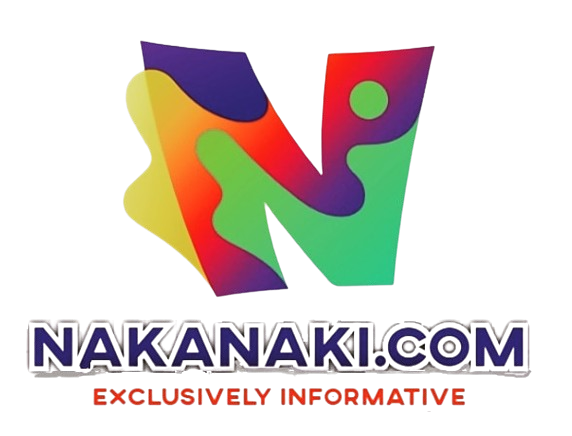
Introduction to Global Finance and Grant Opportunities for Nigerian Businesses
Globally, Nigerian businesses have a myriad of funding and grant opportunities available that can significantly propel their growth and expansion. From tech funding to business financing, Nigerian entrepreneurs stand to gain immensely if they strategically tap into these resources. In an increasingly interconnected world, leveraging international collaborations and partnerships has become paramount.
Tech funding, for instance, plays a pivotal role in fostering innovation and supporting startups. Numerous international organizations and venture capital firms are keen on investing in emerging markets, particularly Nigeria, given its vibrant tech ecosystem. These funds provide critical financial support, allowing businesses to develop groundbreaking solutions and scale their operations.
In addition to tech-focused grants, Nigerian businesses can also explore various business financing options. Global financial institutions, development banks, and international grant agencies provide diverse funding avenues tailored to different business needs. Whether it’s seed capital for startups or expansion funds for established enterprises, these financial instruments are designed to support business sustainability and growth.
Moreover, sales collaborations open up new horizons for Nigerian businesses by connecting them with global markets. International trade partnerships offer not just financial benefits but also knowledge transfer and technological advancements. These collaborations foster a mutually beneficial relationship that can result in the diversification of business operations and increased competitiveness on a global scale.
The importance of tapping into these global finance and grant opportunities cannot be overstated. Not only do they provide the much-needed injection of capital, but they also expose Nigerian businesses to best practices and global standards. Engaging in international partnerships enhances credibility, fosters innovation, and drives long-term success.
Therefore, Nigerian business owners are encouraged to diligently explore and apply for these opportunities. With the right approach and strategic planning, global finance and grant opportunities can be a catalyst for transformative growth, driving Nigerian businesses to unprecedented heights in the global market.
Top Funding and Grant Sources for Nigerian Businesses
The availability of global funding opportunities presents a significant advantage for Nigerian businesses aiming to scale their ventures. Several international foundations, government entities, and non-governmental organizations (NGOs) offer diverse grant programs tailored to various sectors. Here is a detailed overview of prominent funding sources:
1. Y Combinator
Based in the United States, Y Combinator is a renowned startup accelerator that offers seed funding, intensive mentorship, and networking opportunities. Nigerian tech startups can apply to its bi-annual cohorts, where selected companies receive funding, typically around $500,000 in exchange for equity. Eligibility revolves around innovative business models and scalability potential. Notable deadlines include the March and October application dates for the respective cohorts.
2. Tony Elumelu Foundation Entrepreneurship Programme (TEEP)
Launched by a Nigerian entrepreneur, this initiative provides non-refundable seed funding of $5,000 to African startups. TEEP focuses on all sectors with a preference for promising and innovative ventures. Applicants undergo a rigorous selection process, beginning with an annual application deadline in January. This program empowers businesses through training, networking, and mentoring, emphasizing sustainable growth.
3. African Development Bank (AfDB) Youth Agripreneurs Program
The AfDB’s program targets young agro-entrepreneurs across Africa, including Nigeria. The funding amounts vary and aim to support agribusinesses with high growth potential. Elegibility requires applicants to be between 18-35 years of age and involved in agriculture. Deadlines and application procedures follow an annual cycle, promoting sustainable development in the agriculture sector.
4. Orange Corners Nigeria
A Dutch initiative, Orange Corners Nigeria provides young Nigerian entrepreneurs with access to training, funding, and mentoring. It spans multiple sectors, including technology, agriculture, and creative industries. The program grants seed funding up to €15,000. Prospective beneficiaries should look out for bi-annual application windows.
5. UK Government Global Challenges Research Fund (GCRF)
GCRF targets impactful research and innovation projects aiming to address global challenges stemming from climate change, food security, and health. Nigerian businesses operating within these areas can access substantial grants, typically up to £20 million. Eligibility criteria include project relevance to socio-economic development. The fund generally opens for applications on a rolling basis, with specific call deadlines annually.
In leveraging these international funding opportunities, Nigerian businesses can accelerate their growth, innovate efficiently, and effectively contribute to the local and global economies.
Step-by-Step Guide to Applying for Global Grants and Funding
Securing global grants and funding opportunities can substantially benefit Nigerian businesses. The process, however, requires careful planning and execution. To assist you in navigating this journey, we have outlined a step-by-step guide that includes identifying suitable funding opportunities, preparing necessary documentation, writing compelling proposals, and submitting applications.
Step 1: Identifying Suitable Funding Opportunities
Begin your search by targeting grant databases and funding organizations that align with your business objectives. Resources such as the World Bank, the African Development Bank, and grant aggregators like Grant Watch can be valuable. Evaluate the eligibility criteria and ensure that your business meets the prerequisites to avoid unnecessary efforts.
Step 2: Preparing Required Documentation
Once a suitable grant is identified, the next critical step is to gather and prepare all necessary documents. These may include a business plan, financial statements, project outlines, and proof of regulatory compliance. Meticulous attention to detail is essential, as incomplete or incorrectly prepared documentation can lead to disqualification.
Step 3: Writing a Compelling Proposal
A well-crafted proposal is vital. Begin with a strong executive summary that clearly states the purpose and potential impact of your project. Emphasize key points such as the problem your business addresses, your proposed solution, and projected outcomes. Use qualitative and quantitative data to support your claims and demonstrate the feasibility of your project. Incorporating real-world examples can significantly enhance your proposal’s appeal.
Step 4: Submitting the Application
Finally, adhere strictly to the submission guidelines regarding format, deadlines, and required formats. Double-check for accuracy and completeness. Utilize project management tools to track your application’s progress and follow up with the funding organizations for any additional requirements or revisions.
By systematically following these steps and incorporating best practices, Nigerian businesses can maximize their chances of securing valuable global grants and funding opportunities. Engaging with mentors or consultants who have successfully navigated similar processes can also provide additional insights and enhance your application’s strength.
Application Requirements and Useful Resources
To successfully apply for global finance and grants, Nigerian businesses need to be well-versed with the specific application requirements set by different funding sources. Understanding and gathering common documentation is a crucial step in this process. Typically, applicants will need to provide comprehensive business plans that detail their mission, vision, and strategic goals. This document helps funders understand the potential impact and sustainability of the business.
Financial statements are another critical requirement. These include balance sheets, income statements, and cash flow statements, which collectively provide a clear picture of the business’s financial health. Businesses may also be asked to submit proof of registration with the Corporate Affairs Commission (CAC) or equivalent regulatory bodies, which confirms the legitimacy and formal establishment of the enterprise.
Beyond these core documents, some funding bodies may request additional information, such as market research reports, which demonstrate an understanding of the business environment, competition, and target demographics. Letters of recommendation or references from industry peers can also be valuable in bolstering an application.
To facilitate the application process, it is advantageous to utilize a variety of useful resources. Several websites provide centralized information about available global grants and funding opportunities. For instance, the official websites of international funding organizations such as the World Bank, the International Finance Corporation (IFC), and the African Development Bank (AfDB) often have dedicated sections for grants and funding. Additionally, platforms like grantspace.org and africa.com offer updated directories of grant opportunities, application portals, and tutorials for writing effective grant proposals.
Moreover, reaching out to contact points within these funding organizations can be highly beneficial. These contacts, often listed on the official websites, can provide direct guidance or answer specific queries about the application process. Networking with experienced grant writers or consultants who specialize in global finance can also offer targeted advice and improve the chances of securing funding.
Effectively utilizing these resources involves regular monitoring of funding portals, staying informed about deadlines, and understanding the nuances of each funding opportunity. By meticulously gathering the required documents and leveraging available resources, Nigerian businesses can enhance their prospects of obtaining global finance and grants to support their growth and development.


